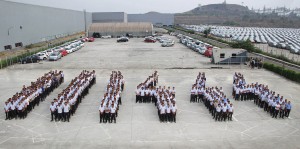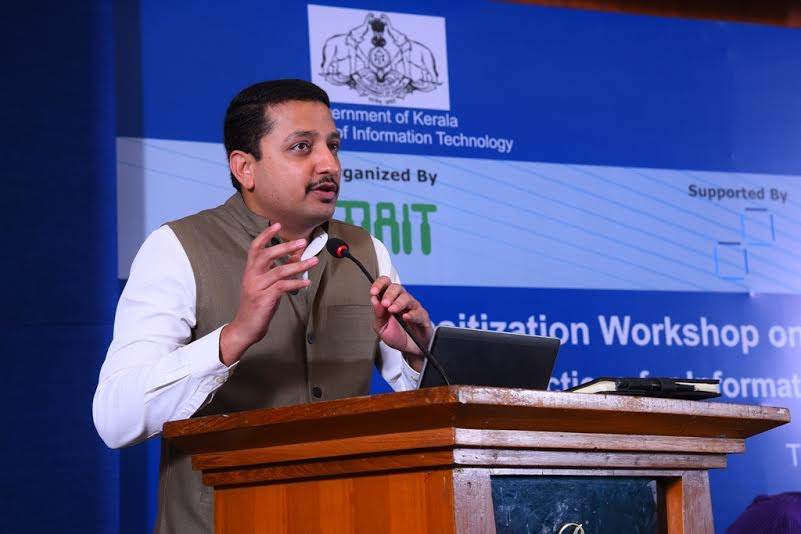111,444 cars produced at Volkswagen Pune Plant in 2014
- Volkswagen Pune Plant recorded the highest number of vehicles produced in a calendar year since its start of operations in 2009
- Exports to over 32 countries across three continents, especially to the Mexican market, drive the high production volumes for Volkswagen India
- Mr. Mahesh Kodumudi, President and Managing Director, Volkswagen India Private Limited, said “The 111,444 cars produced at our Volkswagen Pune Plant this year strongly underline the potential of our production facility. Top notch quality and global manufacturing standards at our plant have been instrumental in catering to the domestic as well as export markets.”
 Volkswagen India recorded a total production of 111,444 cars in the calendar year 2014 – the highest so far since the inauguration of its production facility in Chakan, Pune in 2009. Volkswagen Pune Plant achieved an increase of over 11.4% in production in 2014 as compared to 2013, greatly supported by the rising demand from its export markets.
Volkswagen India recorded a total production of 111,444 cars in the calendar year 2014 – the highest so far since the inauguration of its production facility in Chakan, Pune in 2009. Volkswagen Pune Plant achieved an increase of over 11.4% in production in 2014 as compared to 2013, greatly supported by the rising demand from its export markets.
Mr. Mahesh Kodumudi said on achieving this milestone, “The growth was mainly driven by the export volumes that are being produced at our facility, especially for Mexico. Nearly every second car produced from our plant in 2014 was exported to Mexico.” He further added, “The export activities have helped our plant in tackling the volatilities of the domestic market as well as the currency fluctuations. Exports have helped us in creating a strong second leg of our operations in India. However, our main focus still continues to be on the Indian market which has a great potential to grow in the coming years.”
In 2014, Volkswagen Pune Plant produced a total of 111,444 cars which included the Volkswagen Polo, Volkswagen Vento and Skoda Rapid. With 67,010 number of units, the Vento was the highest produced car of the year followed by 33,547 units of Polo and 10,887 units of Rapid. The export volumes grew by 308% as compared to 2013 and contributed over 59.8% (66,660 units) of the total production. The other highlights for the manufacturing facility were the start of production of the new Polo and the updated versions of Vento and Rapid this year.
Mr. Andreas Lauenroth, Executive Director – Technical, Volkswagen India Private Limited commented, “We have successfully achieved the highest production number at our plant this year without compromising on quality. The high acceptance of our cars to matured export markets such as Mexico underlines the international standards of manufacturing at our Indian production facility.” Commenting on the challenges faced in 2014, he further added, “We managed to shift seamlessly from previous versions of Polo, Vento and Rapid to their updated versions with smooth ramp-ups. This is a clear testimony of the high capabilities of our workforce.”
Volkswagen Pune Plant Chronicles
March 2009: Volkswagen Pune Plant inaugurated and first Fabia rolled out December 2009: Start of Polo production August 2010: Start of Vento production December 2010: Start of production for export to South Africa October 2011: Start of Rapid production July 2012: Start of production of left-hand drive cars October 2013: Start of export to Mexico
Facts & figures of Volkswagen Pune Plant
Area: 575 Acres Shops: Body Shop, Paint Shop & Assembly Capacity: 130,000 cars annually (in current 2-shift system) Cars produced: Volkswagen Polo, Volkswagen Vento and Skoda Rapid Automation: 114 Robots contributing to 35% automation Total Workforce: ~3200 (Direct + Indirect)








